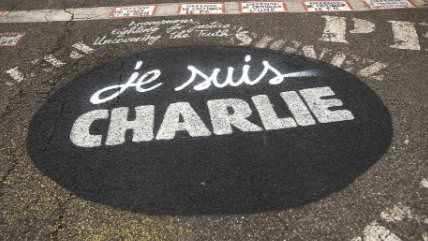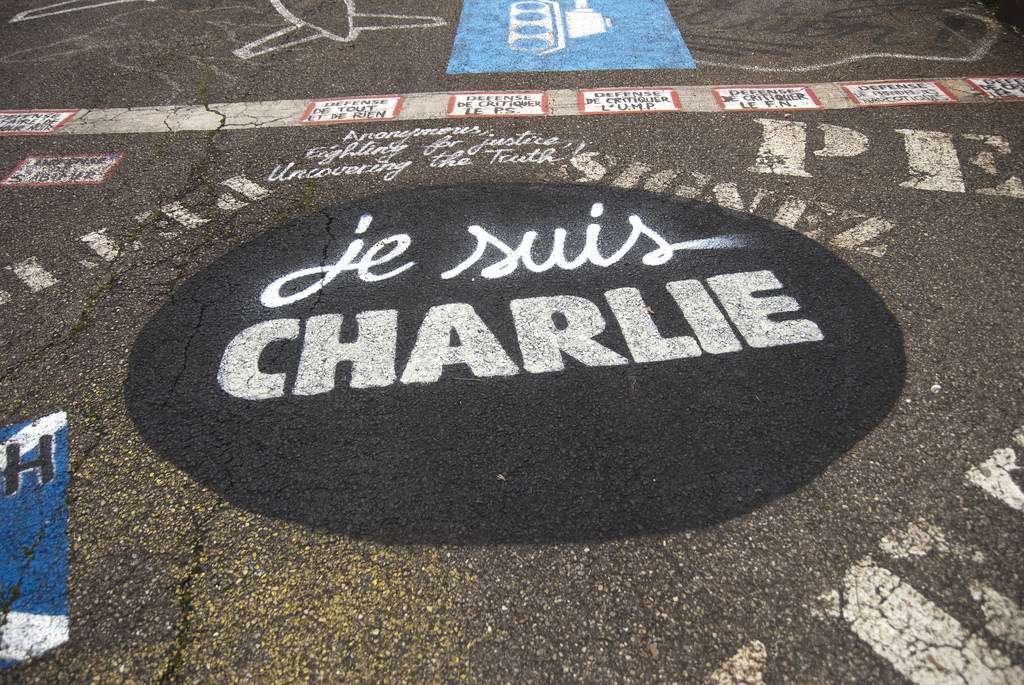'Je Suis Charlie' Now? Of Course
To those of us who have a genuine commitment to freedom of speech, it's not only nice stuff that should be publishable.


Charlie Hebdo is under attack again. Mercifully not by gun-toting Islamists this time, but rather by the unarmed but nonetheless nasty professional offence-takers that are legion in modern Europe.
The scurrilous mag's crime? It dared to publish two cartoons about the refugee crisis engulfing Europe. The cartoons aren't remotely anti-refugee. In fact, they're critical of Europe, not the foreigners trying to get here. One is a drawing of Aylan Kurdi, the three-year-old Syrian kid who washed up on a beach in Turkey. The cartoon shows his dead body alongside the caption "So close to his goal…" and a sign on the beach that says: "Promotion! Two children's menus for the price of one." To my eyes, this looks like a (pretty lame) criticism of European consumerism, the kind of lazy lefty platitude that Charlie Hebdo often indulges in. Big deal.
The second cartoon is more provocative, and better. It shows Christ walking on water next to the words: "Proof that Europe is Christian. Christians walk on water—Muslim children sink." Only the most literally-minded could consider this an attack on Muslims. It's quite obviously a stinging criticism of those hard right-wingers who insist Europe must remain a Christian continent and who might just think that drowned Muslim kids around our watery borders are a price worth paying to keep it so.
But none of this matters to the offence-taking set, because their aim is not to understand, far less be tolerant—it is to take offence. Like vampires in desperate need of blood, the offencerati has an insatiable urge to feed its inner outrage machine, to devour some giver of grievance and spit him out the other end as a chastised, apologetic shadow of his former self.
So the British tabloid the Daily Mirror thundered about Charlie Hebdo "mocking dead Aylan Kurdi." The Los Angeles Times wrung its hands over this latest "Charlie Hebdo furor," reporting the always angry Twitterati's decision that no one could possibly still "want to declare 'Je Suis Charlie'" after this. Russia Today asked "Je Suis Charlie now?" In its link to the offending cartoons, Russia Today put a trigger warning that even some campus authoritarians might consider a bit much: "YOU MAY FIND LINKED CONTENT OFFENSIVE, READER DISCRETION ADVISED," in all capital letters.
Tweeters declared Charlie Hebdo racist, disgusting, etc. One, quoted in media reports, said: "There's free speech, hate speech and simply disgusting & distasteful vitriol. These #CharlieHebdo [cartoons] are the latter." Yet to those of us who have a genuine commitment to freedom speech, it isn't only nice stuff that should be publishable—so should the hateful and disgusting.
After the media fury came the threats of legal action. Britain's Society of Black Lawyers described Charlie Hebdo as "racist, xenophobic and ideologically bankrupt." The Society said it was considering reporting the publications to the International Criminal Court on the grounds that its cartoons were an "incitement to hate crime and persecution." It hasn't done that yet, but it might—the Society has censorious form. Earlier this year it reported a columnist for The Sun to the police, claiming an anti-migrant column she wrote was an incitement to racial hatred. The police are investigating. Seriously. A British police force in 2015 is investigating a woman on suspicion of expressing herself.
The fact-lite fury over these latest cartoons tells us two important things about the sorry state of free speech in the West today.
First, it exposes the shallowness of that eruption of "Je Suis Charlie" following the massacre at the mag's offices in January. Back then, politicians, most of the media, and the Twitterati rallied behind the publication, declaring no one should be shot simply for mocking Muhammad. But that edifice of liberal solidarity soon started to corrode, with liberal columnists wondering if maybe Charlie should tone down its "Islamophobia," followed by various novelists having a hissy fit when PEN America gave Charlie a courage award. Now, in the instinctive tut-tutting and threats hurled at Charlie for publishing cartoons of refugees, we can see that "Je Suis Charlie" was most likely an emotional outburst against an act of barbarism rather than a deep defence of the freedom to say and draw anything we want.
The second thing this latest controversy reveals is that, like charity, censorship begins at home. After the massacre, too many commentators internationalized the crisis of free speech, presenting its demise as something brought about by an alien strain, in this case Islamists with guns. But the offence-taking culture is awesomely powerful within Europe itself, in our capitals, our academies, political circles, and everywhere.
Indeed, it's worth remembering that before Charlie Hebdo was shot up, it had already been taken to court by people offended by its rabble-rousing—because France, like every other European country, has actual laws against being overly offensive about religious groups. It had also been upbraided by, among others, President Obama. The Western culture of "You Can't Say That!" had found Charlie Hebdo guilty of crimes against politically correct sensibilities long before those killers summarily executed its staff for speech crimes against Muhammad. Having been brought up on a continent that chastises gratuitous offensiveness against Islam and other ideologies, those killers can be seen as the armed wing of the offence-taking lobby.
Charlie Hebdo, and others, will get flak so long as Western society values individuals' and group self-esteem over freedom of speech. It's this homegrown warped priority that we need to fix. Say it loud, say it clear: Je Suis Charlie, whether it's punching up, punching down, ridiculing Muhammad, upsetting the right-on, or whatever.


Show Comments (93)